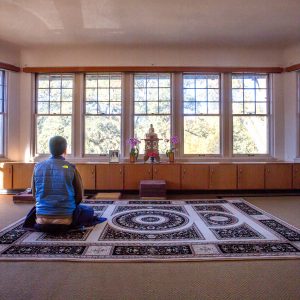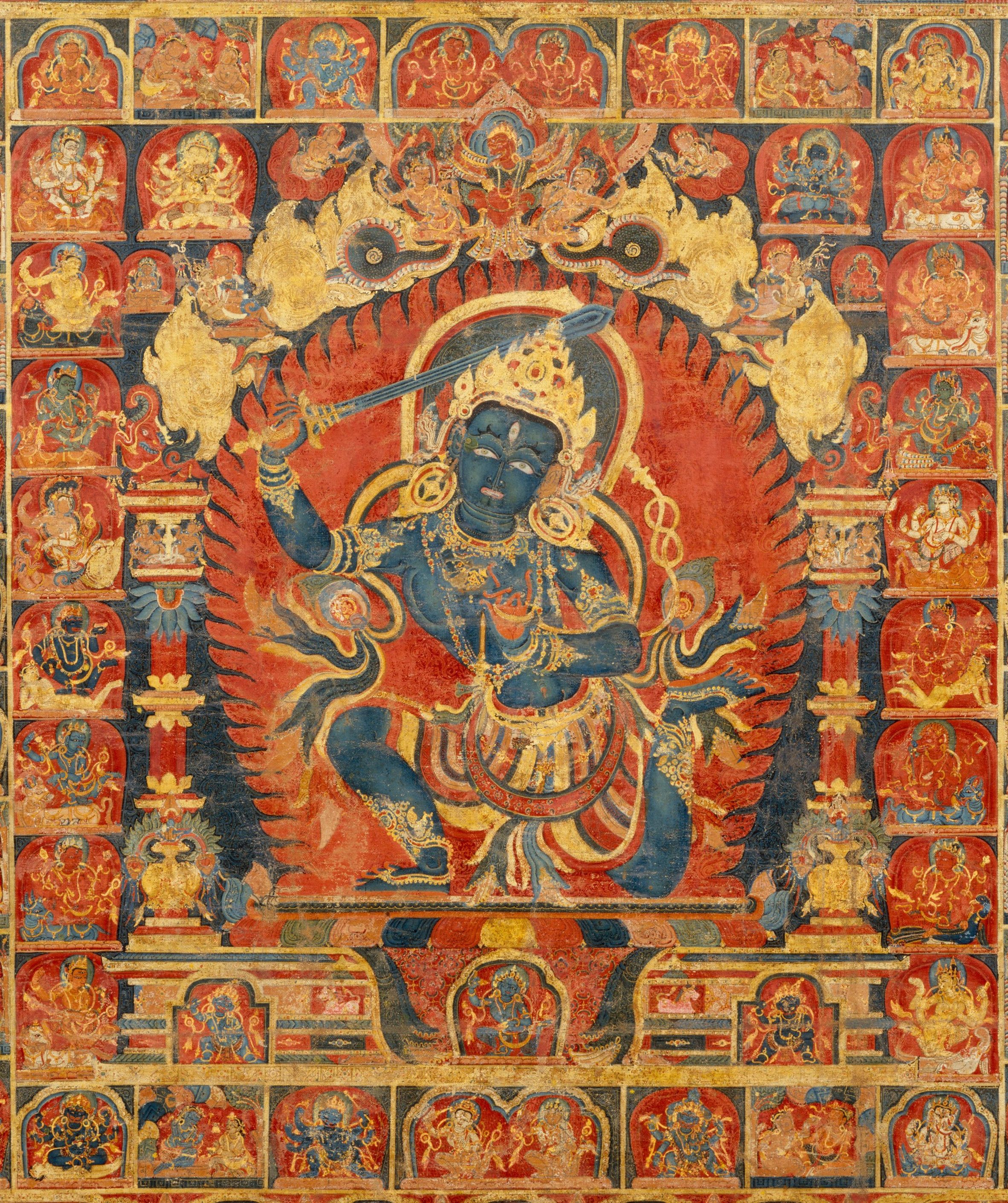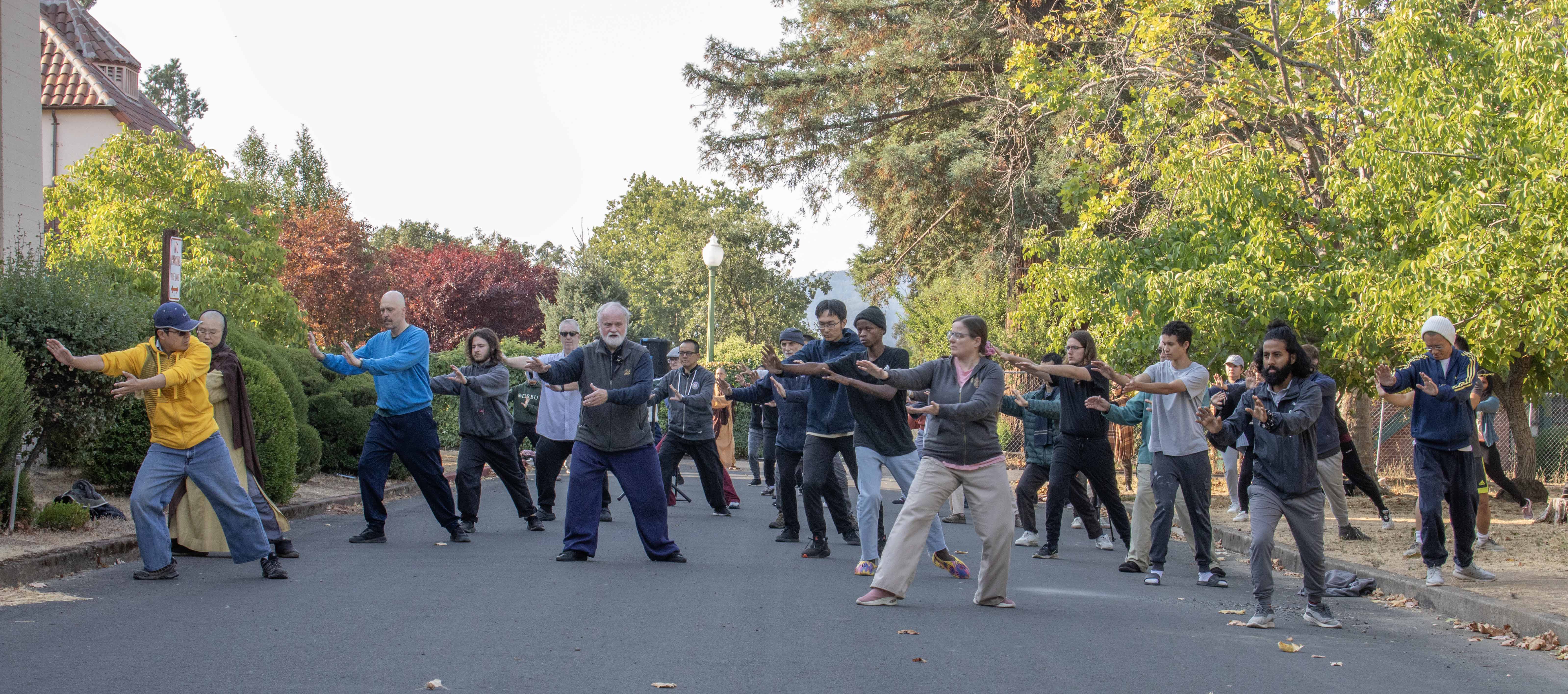
Buddhist Education: In the Spirit of Master Hsuan Hua
By Dean of Academics Martin Verhoeven
Prepared in 1991 on Master Hsuan Hua’s instructions following UNESCO Paris lecture
Buddhist education simply stated is the teaching of wisdom and compassion. It seeks for the liberation of human potential through the study and understanding of the mind and all its states. ‘Buddha,’ a title of honor and respect, means ‘awakened, or enlightened one.’ Hence, Buddhism is the study and practice of awakening to truth; the understanding of things as they really are. Such study necessarily begins with self-knowledge. The premise that all beings possess an innate capacity for wisdom and enlightened reason underlies all Buddhist thought. The goal of teaching, therefore, is to arouse this innate potential; the goal of learning, to actualize that inherent wisdom—a wisdom characterized by an unattached, unbound, liberated mind—and a compassionate regard for all that lives.
The philosophy and methodology of Buddhist education, thus, by necessity must be non-dogmatic as it teaches “from the inside out.”
Its aim is to animate the intrinsic wisdom and nurture the seeds of compassion in each individual. This is accomplished not so much filling students’ minds with a prescribed body of knowledge and beliefs, as by providing them the tools with which they gain self-knowledge and activate their own inherent potential. The goal is not to dictate established truths without, but to kindle and illuminate abiding truths within. This accords with the meaning of ‘education’ (educere), ‘to draw out.’ Such education properly conducted does not indoctrinate, but simply disentangles; it enables one to see through and remove the ignorance obscuring wholesome inborn qualities. In short, a Buddhist education should provide the means and milieu that favors self-discovery, encourages genuine and direct understanding, and fosters a wish to benefit the world.
A compassionate concern for all humankind is a natural outgrowth of a Buddhist education because wisdom and compassion intertwine. Wisdom without compassion is fallow; but compassion lacking wisdom is often blind. The Buddhist-educated person thus demonstrates an unflagging commitment to work for the betterment of humanity; to give untiringly in the effort to alleviate suffering and bring peace and happiness to all living beings. Kindness, compassion, joy, and equanimity are the hallmarks of individuals educated in the Buddhist way. Buddhist education grows out of a 2500 year-old tradition whose basic tenets remain unchanged and ever relevant to the human condition.
A process rather than a product, learning in the Buddhist tradition is engaging, lively, and rigorous. It is philosophically profound, yet rich in its practical applications.
Guided and informed by time-honored axioms of education both East and West, it holds virtue to be the basis of self-knowledge, goodness its outcome, and benefiting others its application. Such ‘true knowledge’ it is held, gives freedom, but it is a liberation born of disciplined self-mastery rather than from desires unrestrained.
Thus, the central defining characteristic of Buddhist education is expressed in the classical three-fold approach to higher learning: ethics, equanimity, and insight. The discernment of truth results from a lucid and concentrated mind. Such mental clarity and focus, in turn, arise naturally from an untroubled conscience gained from leading a humane and blameless life. Morality, concentration, and wisdom, therefore, are the very heart and soul of the meaning, methods, and achievements of education in the Buddhist tradition.
Subscribe to Our Newsletter
Get nourishing and mind-expanding writings in your inbox.


